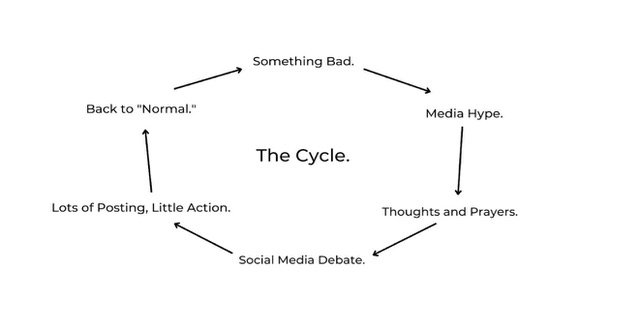By Tara Smith
There has been and continues to be so much going on in our world and we tend to see it all flash by on our screens everyday. Since the global shutdown in 2020, it feels like there has been a different crisis for each day of the week tagged by a surge of social media sharing and hashtags. At the rate that we get information on social media, how effective are our responses? As the Communications Associate here at Phīla and the person behind @philagiving on Instagram, I work to educate the public about causes that align with their values and help interpret shifts in social discourse and dynamics happening on our social media feeds. While social media has been an effective tool in spotlighting different issues, giving a voice to all, building movements, rallying global awareness, and unifying people together in the pursuit for progress, it also has given rise to “slacktivism” and risks leaving action in the dust.
What is “slacktivism”? It is a kind of activism that we all may find ourselves taking part in from time to time. It is defined as an act where individuals “support a cause by performing simple measures but are not truly engaged or devoted to making a change.” A simple measure in this context could signify a reshare of a post or story, using a temporary filter profile photo to show solidarity with a cause, signing a petition and forgetting about it, or liking a bunch of posts that resonate. While these actions can be helpful for raising awareness and donations to an issue in the immediate, they can also create a habit of reactionary activism and lead to a decline of momentum.
I hope this topic does not dissuade you from resharing a post you identify with or signing petitions. It is important to share your perspective on important topics and help build awareness for causes you care about. But this is just the first step. We need to do more if we want to be activists. We need to bring ENERGY to the movement.
I am not alone in thinking we need to do more. I am increasingly seeing the digital community share commentary on the lack of action happening in our society. Recently, in the wake of the tragic mass shooting in Uvalde, TX, I’ve seen posts similar to the one below being circulated around the feed. This is a different message than what we typically see - it’s a social calling out to everyone who uses the platform and engages in online ‘activism.’ This asks us to reflect on our actions and reminds us of the urgency to keep the momentum and not move on just because the media hype simmers down.
I adapted this graphic and believe it is representative of the general sentiments circulating on social media.
We as social media users are capable of doing so much more than a simple reshare or like. It’s time to break this cycle and embark on a new era of social activism.
Here are a few ways you can go beyond “slacktivism”:
Learn about the post you are sharing. Read the caption, click the links, find the source, get connected with organizations involved, and learn about what you can do to help.
Build out resources if you are going to share a post. Use your social media presence to add context and resources that you know your followers will respond to. Passively re-sharing posts on your story is reactionary activism and it does not do much in the long run.
Be an ally online and offline - speak up in your social circles.
Get educated on the issue. We only see a handful of resources during a media hype, it is important to understand the history, context, and work being done to help contribute to change.
If there is a petition, sign it, share it, and don’t forget to follow up. If we want change we have to stay committed.
Volunteer for an organization working on a cause you care about.
Connect with local community groups and mutual aid networks.
Get involved in the political process and VOTE. We have the power to vote for leaders and policies that affect the causes and issues we care about. Learn more about congressional, state, and local elections and make your vote count!
Reflect on your activism. What can you do differently?
Engage in philanthropy. If there is ever a time to connect with your giving, it is now.
As we work to collectively amp up our activism in the digital era, I want to leave you with a quote from my colleague, Claudia DeCasas, that I find powerful and applicable to all of us who want to see change. She said, “we all affect the world we live in, whether we intend to or not. Philanthropy, to me, is the willingness to reflect on your own power and choose to make a positive impact with it.” I think this quote goes well beyond philanthropy and it sets the tone for how we can all practice activism moving forward.


